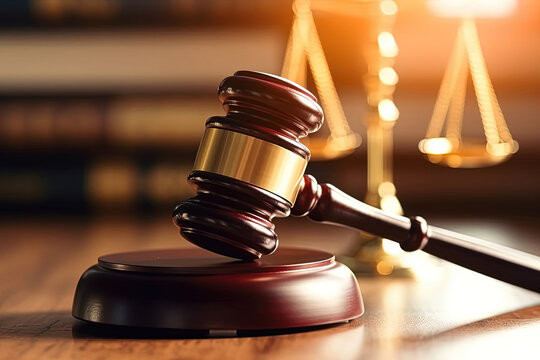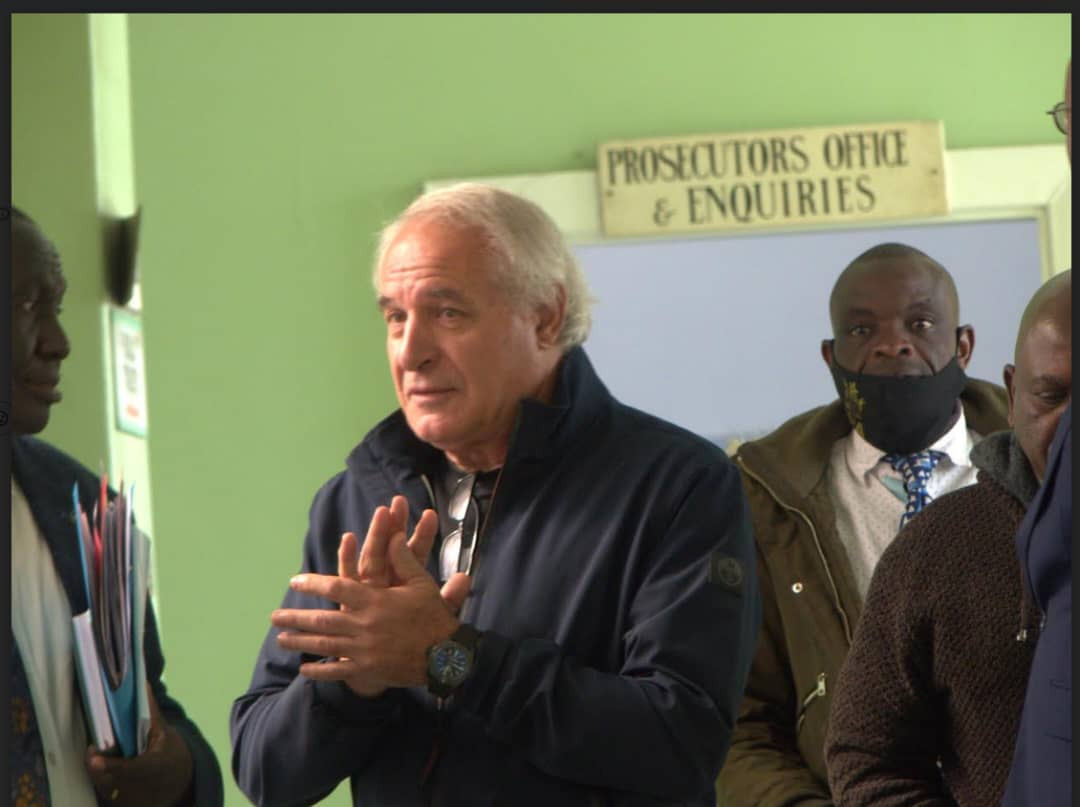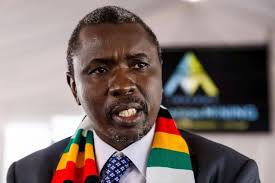
ON June 14, 2022 lawyer and former legislator Job Sikhala was arrested, detained and denied bail for two years, while being kept at Chikurubi Maximum Security Prison.
Sikhala was eventually acquitted off all the charges, yet he was punished already for offences that he did not commit.
The firebrand opposition leader is not the only victim of punishment by prolonged pre- trial detention, the list is long and disturbing, unfortunately showing what legal scholars view as a shocking disregard of the constitution, more aptly captured in an academic paper titled “Courts as a forum of safeguarding the right of opposition parties to participate in democratic processes.” The paper was co- authored by Zimbabwean lawyer and academic Justice Mavedzenge.
Evidence suggests that Zimbabwean courts have been reduced to mere appendages of the ruling elite, making a mockery of the rule of law and separation of powers, both indispensable in making a constitutional democracy function.
It is at the back of such concerns that victims of prolonged pre- trial detention feel that the courts have failed to give full meaning to the Declaration of Rights, particularly the right to bail,
Another victim of this abuse is Best Zuze, who spent 17 months in prison on allegations of illegally selling firearms, he lost his job and freedom only to be acquitted at the close of the state case. In other words the state’s case was so weak that they did not even manage to prove (a prima facie case) or any wrong doing on the part of Zuze.
After 17 months, Zuze went back to his family without any apology or compensation. It was just a simple ‘you are found not guilty and acquitted you are now free to go home’ and life went on.
Pre-trial incarceration is being used as a tool of repression, not only against alleged political enemies, but also those considered misfits, especially armed robbery suspects.
- The Soccer Whiz:The return of the European heavyweights
- Yadah’s good run continues
- Yadah, Triangle share spoils
- 15 supporters arrested after violence erupts at Mandava
Keep Reading
This contravenes the constitution of Zimbabwe, which in section 70 (1) (a) sought to avoid this kind of abuse of the law and punishment by pre-trial detention.
The constitutional position remains that all accused persons must be treated as innocent until proven guilty by a competent court of law.
Once an accused person is treated as a guilty person before a court trial and determination of the question before the courts, that individual will suffer irreparable harm and loss, a mischief which the constitution sought to cure.
Zuze lost time with his family, lost income and his freedoms. He went through a great deal of pain while in custody at Harare Remand Prison and no amount of money, apology or prayer can restore this.
To further ensure that pre-trial detention and punishment is avoided, the constitution, makes bail a right only taken away by the courts if compelling circumstances exist.
It is important to look at provisions, which deal with these in detail so as to remove doubt.
Section 50(1)(d) of the constitution, reads “Any person who is arrested, must be released unconditionally or on reasonable conditions, pending a charge or trial, unless there are compelling reasons justifying their continued detention .”
A simple reading of this clause shows that the use of a preemptory word – must - means that they should be absolutely no negotiation – once you appear in court as an accused you must be released on bail.
This right, as with other rights, is however not absolute as it can be taken away from an accused person – but only where there are compelling circumstances, which are spelt out in the Criminal Procedure and Evidence Act (CPEA) section 117 (2).
The provision spells out that bail may be denied if the state shows that one or more of the following grounds are exist. (i) endanger the safety of the public or any particular person or will commit an offence referred in the First Schedule or (ii) not stand his or her trial or appear to receive sentence or (iii) attempt to influence or intimidate witnesses or conceal or destroy evidence or (iv) undermine or jeopardise the objectives or proper functioning of the criminal justice system, including the bail system or (v) disturb the public order or undermine public peace or security.
In simple words, the burden is on the state to prove compelling reasons against which an accused person should have his or her right to bail taken away, but in contrast the CP&E Act appears to put the burden on the accused persons and broadens reasons to deny bail by merely proving a likelihood of any of the above five conditions.
If the spirit of section 50 of the constitution is followed in its spirit and letter, the accused person must never apply for bail once before a court, it’s the state that must apply to get that right taken away by the courts, the measure of a mere likelihood alone should not be enough. In other words a right is yours to take, you can’t apply for that which is already given.
Lawyer and academic Musa Kika argues that the CP&E Act in its current state violates sections of the constitution, especially regarding court proceedings in bail application because it still gives the accused the burden to apply for bail.
“There is a case to look into the Act and align it with the constitution, to reflect the changes from the old to the new. In any bail application, the state must be applicant, while accused is the respondent,” Kika says.
In the State Vs Faith Zaba (editor of the Zimbabwe Independent) case demonstrated the need to amend the CP&E Act beyond doubt as even after the state was not opposed to bail, magistrate Vakai Chikwekwe still demanded that she makes a full bail application.
The problem is not in the court inquiring into whether compelling circumstances exist to deny bail, but in whether an accused must be making an application.
Zaba was to spend two nights in remand prison while waiting firstly for the state to establish that it had no compelling reasons to deny bail and secondly for the magistrate to deliver a full ruling on an uncontested bail application.
The magistrates ruling and his actions were in total contrast, while he took his time to deliver an uncontested bail application ruling, the text he delivered on the other hand argued that bail was a significant human right which the courts should protect and be slow to take away.
In the past, the number of cases in which the courts have allowed bail hearings to go well beyond three or four days have caused human rights lawyers to worry.
Mike Chimombe and Moses Mpofu, who have been in pre-trial detention for 14 months, spent two weeks going through bail hearings.
When this writer was arrested his own bail application took four days before it was denied and 72 days before it was eventually granted on conditions that we had first argued should have been imposed to balance the interests of the rights of accused persons and the administration of justice.
To show that the drafters of the constitution were serious in avoiding punishment by pre-trial incarceration, the constitution imposed another pre-emptory safe guard clause which has been scarcely tested in our courts of law.
This clause seeks to ensure that even where compelling circumstances exist and bail is denied, trial must be held within a reasonable time to the extent that, the state does not abuse prison systems by keeping innocent people in pre-trial detention.
Lawyer Chris Mhike in State Vs Blessed Mhlanga argued this constitutional right in Section 50(6) which says, “Any person who is detained bail pending trial for an alleged offence and is not tried within a reasonable time must be released from detention, either unconditionally or on reasonable conditions to ensure that after being released they (a) attend trial (b) do not interfere with the evidence to be given at the trial: and (c) do not commit any other offence before the trial begins.”
Mhike at that point argued that 58 days in pre-trial detention was unreasonable for the charges the state was preferring against the accused.
He argued that any length of time that equals a custodial prison sentence is itself unreasonable and as such anything beyond two months was punishment and not reasonable.
The court evaded the question and did not pronounce itself on that point. Infact the judgment by magistrate Donald Ndirowei totally ignored the argument as if it was never presented before him and, therefore, refused to deal with the question on what constitutes reasonable time. This is yet to be tested in our courts.
The Canadian courts have established that from arrest to conclusion of a case when an accused is being tried out of custody should not be longer than 18 months, anything beyond that is unreasonable.
At the centre of constitutionalism and constitutional law is separation of powers in an effort to protect fundamental human rights and freedoms.
It is trite, therefore, that in a constitutional democracy that the judiciary composed of men and women of learning and integrity becomes the bulwark of the system.
Constitutional law expert and lecturer Lovemore Madhuku argues: “In the course of executing their constitutional mandate, there is bound, on occasions to be friction and tension amongst the three organs of the state.
“When such tensions arise, they must be addressed soberly and mutually so that the great prize, that the constitution sought to secure for everybody, being liberty, does not become a causality.”
*Blessed Mhlanga is a law student at the University of Zimbabwe and head of broadcasting at Alpha Media Holdings











